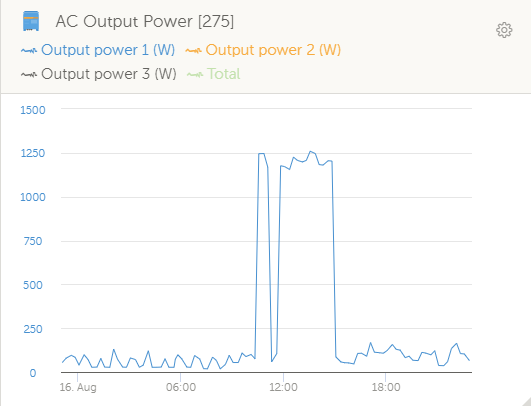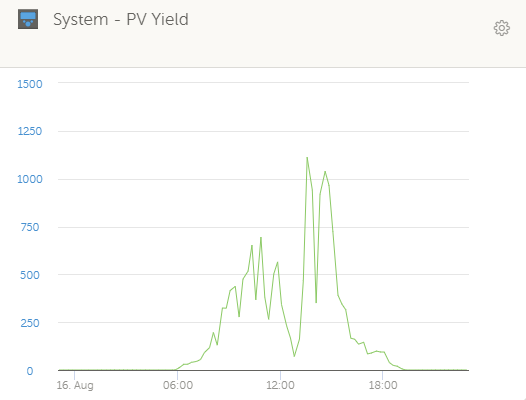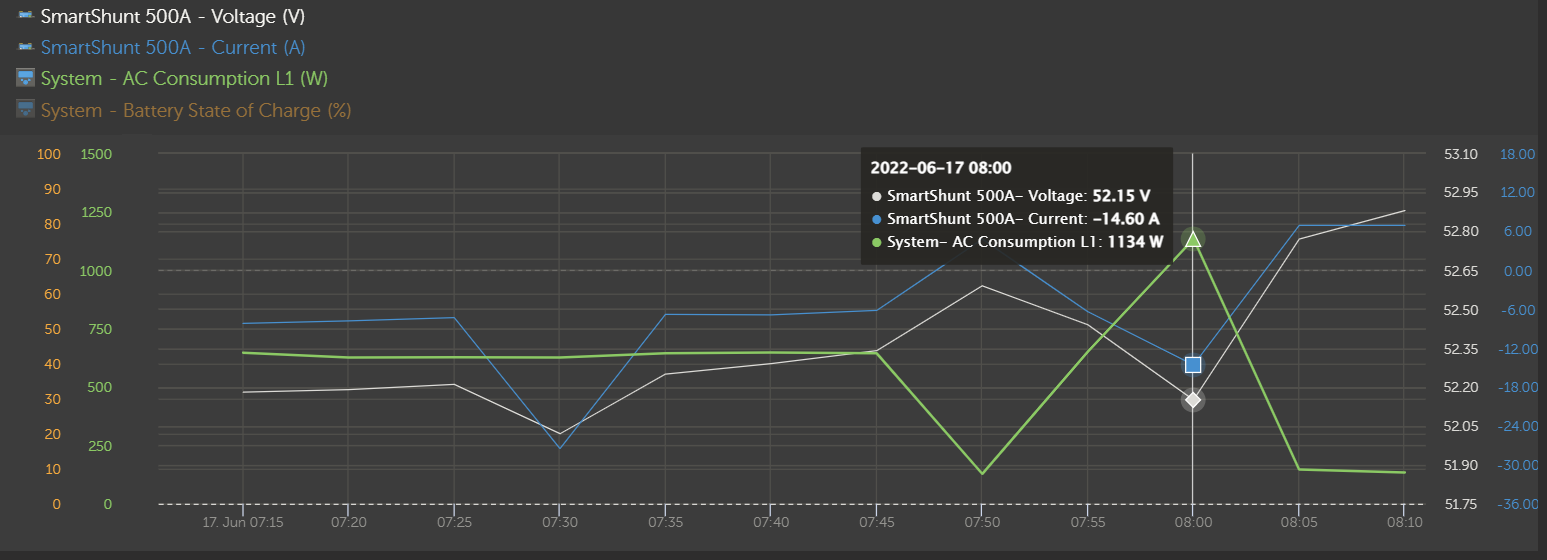Hello,
I have installed the following off-grid system, which has been working pretty good for one year.
- 4 300W solar panels
- MULTIPLUS-II GX 48V
- SMARTSOLAR MPPT 150/35 48V
- 8 Acid Lead batteries of 6V each (Deka GC15)
However I'm wondering if the behavior I see when I plug a 1200W water heater during the central hours of the day is expected.
As you can see from following graphs the battery voltage drops when load is active and jumps back to an higher value afterwards.
Reading other posts on this subject I've got this is expected indeed, but my question is: do I have to worry about this voltage drop? In other words: should I power on the AC generator if the battery voltage goes down to 46V like in the picture below?
Thanks a lot,
Matteo





